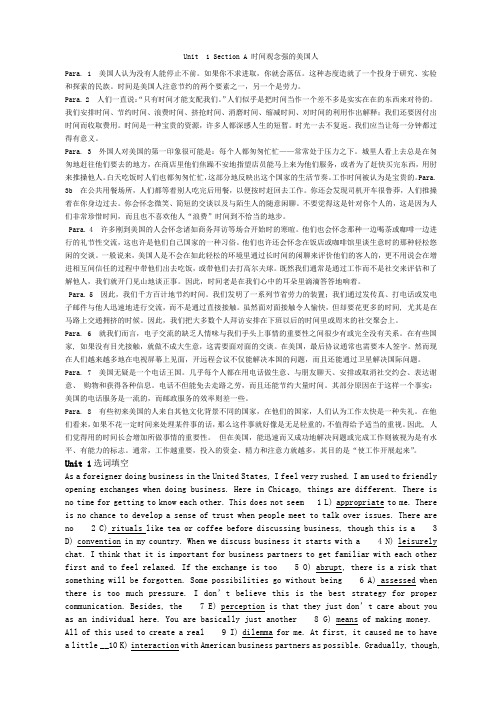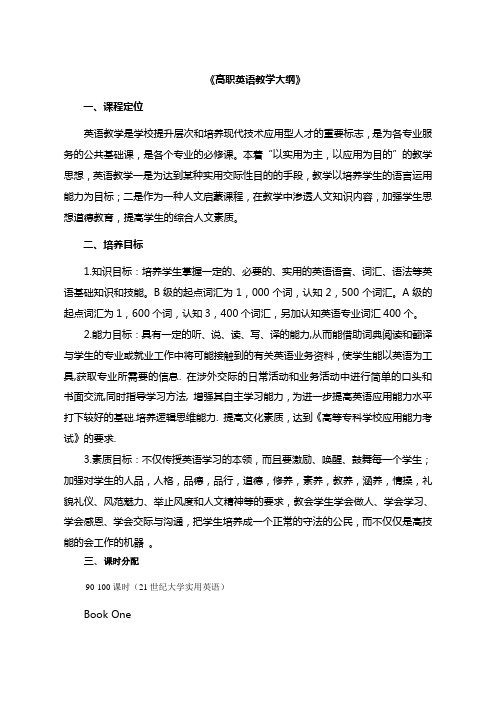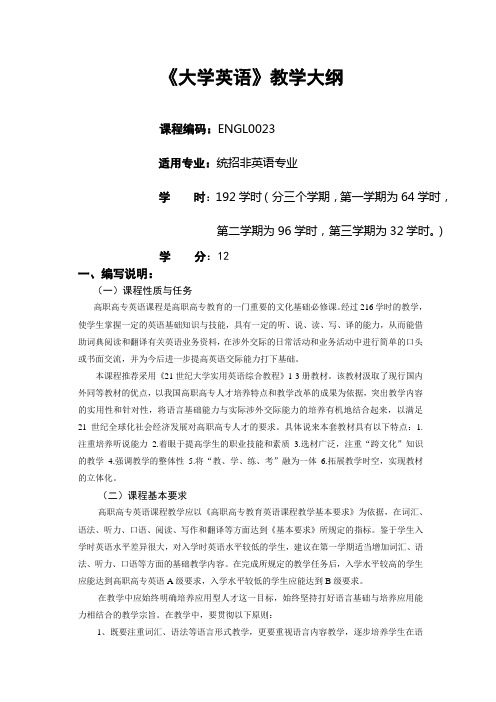unit2 Mistaken Identity
unit 2 Identity

Listening task 3
• • • • • • New words and expressions Make sure to do sth A rock band A straight A student Assume=suppose I’m not offended.
Listening task 1
Listening task 2
• • • • • • New words and expressions Ah, come on. Passionate adj. enthusiastic Be passionate about sth A private thing I do it for myself.
Listening task 1
• Answers: • 2. Your girlfriend showed me some ___. • 4. Actually, I think it’s __ cool. I wish there was something I felt that ___. • 5. Dancing is a ___ thing for me. It’s just something I do ___.
Writing
Please write about yourself. Personality Something you’re good/bad at Something you like/hate to do with your friends/by yourself • A talent • A dream • … • • • •
• • • • Questions: 1. What does the other person ask Kayla for? 2. When will Kayla need it? 3. How does the other person react when he knows that Kayla plays in a bank? • 4. What kind of a person is Kayla in his mind? • 5. What does Kayla say about herself? • 6. What do we know about Kayla?
八下英语名师学案第二单元作文

八下英语名师学案第二单元作文Unit 2: Cultural Identity.Writing Task: A Reflection on Your Cultural Identity.Culture is a complex and multifaceted concept that encompasses the beliefs, values, norms, and practices of a particular group of people. It shapes our perceptions of the world, our interactions with others, and our sense of identity. In this writing task, you will reflect on your own cultural identity and explore the various factors that have influenced its formation.Introduction.Begin your essay with a compelling hook that captures the reader's attention and introduces the topic of cultural identity. You might start with a personal anecdote or an evocative description of a cultural tradition that holds special significance for you. State your thesis statementclearly and concisely, outlining the main points you will discuss in your essay.Body Paragraph 1: Family and Community.In this paragraph, discuss the role of your family and community in shaping your cultural identity. Consider the beliefs, values, and customs that you have inherited from your family and the ways in which your community has influenced your worldview. Explore the specific traditions, rituals, or practices that have had a profound impact on your sense of belonging.Body Paragraph 2: Education and Experiences.Education and life experiences play a significant role in shaping our cultural identity. In this paragraph, discuss how your educational experiences have exposed you to different cultures and perspectives. Reflect on any significant cultural encounters or travels that have broadened your understanding of the world. Explain how these experiences have influenced your beliefs and values,and how they have contributed to your cultural identity.Body Paragraph 3: Social and Media Influences.In today's globalized world, social and mediainfluences have become increasingly powerful forces in shaping cultural identity. In this paragraph, examine the impact of social media, popular culture, and mass media on your own cultural identity. Discuss how these influences have introduced you to new cultural ideas and norms, and how they may have challenged or reinforced your existing beliefs and values.Body Paragraph 4: Personal Reflections.In this paragraph, delve deeper into your own personal reflections on your cultural identity. Consider the unique aspects of your cultural identity that make you who you are. Explore the challenges and opportunities that beingculturally diverse has presented to you. Discuss how your cultural identity has influenced your aspirations, goals, and sense of purpose.Conclusion.In your conclusion, summarize the main points of your essay and reiterate your thesis statement. Emphasize the importance of cultural identity in understanding ourselves and our place in the world. Express your personal reflections on the richness and diversity of human culture, and propose ways in which we can foster cultural understanding and respect in our increasingly interconnected global society. End your essay with a strong and memorable closing statement that leaves a lasting impression on the reader.。
高中英语人教版必修二Unit-2知识点汇总与强化练习

高中英语人教版必修二U n i t-2知识点汇总与强化练习(总18页)--本页仅作为文档封面,使用时请直接删除即可----内页可以根据需求调整合适字体及大小--Unit 2 The Olympic Games 单元要点预览Ⅰ 词语辨析Ⅱ 词性变化(旨在提供语法填空所需材料)Ⅲ 重点词汇1. admit vt. & vi. 许可某人/物进入;接纳,接受某人(入院入学等);承认,招认[典例]1). The school admits sixty new boys and girls every year. 这所学校每年招收六十名男女新生。
2). He was admitted to hospital with minor burns. 他因轻度烧伤而入院。
3). I admit (that) you have a point. 我承认你有理。
4). George would never admit to being wrong. 乔治从不认错。
[重点用法]admit (doing)sth.承认某事/做了某事admit that +从句承认……[练习] 中译英1). 他招认偷了那辆汽车。
______________________________________________________________________ 2). 不准那个人进来。
______________________________________________________________________2. charge n. 费用;v. 指控;收费[典例]1). All goods are delivered free of charge. 一切物品免费送货。
2). He was charged with murder. 他被控犯谋杀罪。
[重点用法]in/under the charge of 在某人照看(掌管)下in charge of处于控制或支配(某人[某事物])的地位:[练习] 中译英1). 这些病人由威尔逊医生治疗。
对老师课堂教学的评价_浅谈如何有效展开高职高专英语课堂教学

《对老师课堂教学的评价_浅谈如何有效展开高职高专英语课堂教学》摘要:作为国际政治经济文化交流的通用语,英语的重要性毋庸置疑,英语的教与学也一直是人们探讨的主要话题,本文聚焦于高职高专英语课堂教学,客观地指出了高职高专英语课堂教学存在的问题,并就如何有效展开高职高专英语课堂教学提出了可行的具体措施,(一)抓住文章结构特点,结合学生自身的实际能力灵活讲解,激发学生的学习主动性抓住文章结构特点,结合学生的实际能力寻找恰当的角度进行剖析可以打开学生思维,激发学生的学习主动性,(三)关注学生的精神状态,适时调整教学环节,帮助学生进入学习状态 45分钟内注意力高度集中是很难的,尤其对英语基础较差的高职高专学生而言,英语课是最排斥的一堂课,学生更容易在课堂上开小差作为国际政治经济文化交流的通用语,英语的重要性毋庸置疑,英语的教与学也一直是人们探讨的主要话题,本文聚焦于高职高专英语课堂教学,客观地指出了高职高专英语课堂教学存在的问题,并就如何有效展开高职高专英语课堂教学提出了可行的具体措施。
一、高职高专英语课堂教学现状及原因在中国,英语学习的现状究竟如何呢?一方面,随着国际经济文化交流的日益频繁,英语越来越凸显出其重要性和必要性,全民英语学习化趋势已在逐渐形成中。
另一方面,很多中国学生的英语学习效果却并不骄人,而基础参差不齐的高职高专学生的状况更是令人沮丧:英语课堂上常常出现瞌睡、说话、玩手机、提问无应答等状况便是一例。
高职高专英语课堂教学另一个需要反思的问题即是教师的课堂教学模式。
长期以来,由于受应试教育的影响,英语教育还存在未清除的遗留问题:一是还未彻底改变教学中以教师为中心的观念,在教学中把学生当作接受知识的容器,以教代学、以讲代练,学生主动参与的积极性不高;二是“翻译式”、“灌输式”的教学方式仍然存在;三是英语实践的量少、内容死、面窄,学生的语言交际能力得不到应有的提高,学生学英语的兴趣不高。
基于上述情况,高职高专英语教学改革必须从课堂教学抓起,开展有效的课堂教学。
新教材外研版英语选择性必修第三册课件Unit1Facevalues教学知识细解码

[知识拓展] as is known to all as is expected as is reported as we all know as you can see as is often the case
Unit 1 Face values
教学 知识细解码
1. identical adj.完全相同的;非常相似的→identically adv.相等,
同一
2.acknowledge v.承认(某事属实或某情况存在)→acknowledgement
n.(对某事属实或某情况存在)承认;感谢
3. pretend v.假装, 装作→pretender n.冒充者
__v_._俯__瞰__
②I'll overlook your mistake this time,but don't make it again. __v_.不__计__较___
③This area is often overlooked but has a huge impact on your life. _v_.忽__视__,__忽__略___
Sentence Patterns 重点句式1 as 引导非限制性定语从句 (教材 P2) As a song in Ugly Betty puts it,“It's a pretty person's world”. 正如《丑女贝蒂》中的一首歌中所唱的,“这是一个看脸的世界”。
句式分析:as a song in Ugly Betty puts it 是非限制性定语从句, as 代替整个主句的内容。as 引导非限制性定语从句时放在主句前 后均可,意为“正如”,后边的谓语动词多是see,know,expect, say,mention,report等。
新视野大学英语第二版第二册课文要点总结

Unit 1 Section A 时间观念强的美国人Para. 1 美国人认为没有人能停止不前。
如果你不求进取,你就会落伍。
这种态度造就了一个投身于研究、实验和探索的民族。
时间是美国人注意节约的两个要素之一,另一个是劳力。
Para. 2 人们一直说:“只有时间才能支配我们。
”人们似乎是把时间当作一个差不多是实实在在的东西来对待的。
我们安排时间、节约时间、浪费时间、挤抢时间、消磨时间、缩减时间、对时间的利用作出解释;我们还要因付出时间而收取费用。
时间是一种宝贵的资源,许多人都深感人生的短暂。
时光一去不复返。
我们应当让每一分钟都过得有意义。
Para. 3 外国人对美国的第一印象很可能是:每个人都匆匆忙忙——常常处于压力之下。
城里人看上去总是在匆匆地赶往他们要去的地方,在商店里他们焦躁不安地指望店员能马上来为他们服务,或者为了赶快买完东西,用肘来推搡他人。
白天吃饭时人们也都匆匆忙忙,这部分地反映出这个国家的生活节奏。
工作时间被认为是宝贵的。
Para. 3b 在公共用餐场所,人们都等着别人吃完后用餐,以便按时赶回去工作。
你还会发现司机开车很鲁莽,人们推搡着在你身边过去。
你会怀念微笑、简短的交谈以及与陌生人的随意闲聊。
不要觉得这是针对你个人的,这是因为人们非常珍惜时间,而且也不喜欢他人“浪费”时间到不恰当的地步。
Para. 4 许多刚到美国的人会怀念诸如商务拜访等场合开始时的寒暄。
他们也会怀念那种一边喝茶或咖啡一边进行的礼节性交流,这也许是他们自己国家的一种习俗。
他们也许还会怀念在饭店或咖啡馆里谈生意时的那种轻松悠闲的交谈。
一般说来,美国人是不会在如此轻松的环境里通过长时间的闲聊来评价他们的客人的,更不用说会在增进相互间信任的过程中带他们出去吃饭,或带他们去打高尔夫球。
既然我们通常是通过工作而不是社交来评估和了解他人,我们就开门见山地谈正事。
因此,时间老是在我们心中的耳朵里滴滴答答地响着。
Para. 5 因此,我们千方百计地节约时间。
高职英语教学大纲

《高职英语教学大纲》一、课程定位英语教学是学校提升层次和培养现代技术应用型人才的重要标志,是为各专业服务的公共基础课,是各个专业的必修课。
本着“以实用为主,以应用为目的”的教学思想,英语教学一是为达到某种实用交际性目的的手段,教学以培养学生的语言运用能力为目标;二是作为一种人文启蒙课程,在教学中渗透人文知识内容,加强学生思想道德教育,提高学生的综合人文素质。
二、培养目标1.知识目标:培养学生掌握一定的、必要的、实用的英语语音、词汇、语法等英语基础知识和技能。
B级的起点词汇为1,000个词,认知2,500个词汇。
A级的起点词汇为1,600个词,认知3,400个词汇,另加认知英语专业词汇400个。
2.能力目标:具有一定的听、说、读、写、译的能力,从而能借助词典阅读和翻译与学生的专业或就业工作中将可能接触到的有关英语业务资料,使学生能以英语为工具,获取专业所需要的信息. 在涉外交际的日常活动和业务活动中进行简单的口头和书面交流,同时指导学习方法, 增强其自主学习能力,为进一步提高英语应用能力水平打下较好的基础.培养逻辑思维能力. 提高文化素质,达到《高等专科学校应用能力考试》的要求.3.素质目标:不仅传授英语学习的本领,而且要激励、唤醒、鼓舞每一个学生;加强对学生的人品,人格,品德,品行,道德,修养,素养,教养,涵养,情操,礼貌礼仪、风范魅力、举止风度和人文精神等的要求,教会学生学会做人、学会学习、学会感恩、学会交际与沟通,把学生培养成一个正常的守法的公民,而不仅仅是高技能的会工作的机器。
三、课时分配90-100课时(21世纪大学实用英语)Book One三、课程教学内容(Book 1)Unit One重点:●课文——Text A Transition Point in my lifeText B What I Hope to Gain from a College EducationText C Devlin’s Advice●语法——Verb Tenses (1)●写作——Registration Form●练习——Exercises for Unit One●听说——Introducing Yourself, Getting to Know People, ListeningPractice难点:●Vocabulary●StructureUnit Two重点:●课文——Text A He Helped the BlindText B Don’t Eat the T omatoes; They’re Poisonous!Text C Ups and Downs●语法——Verb Tenses (2)●写作——Book Order Form●练习——Exercises for Unit Two●听说——Offering Help, Expressing Willingness to Help, Listening难点:●Vocabulary●StructureUnit Three重点:●课文——Text A Thanks, Mom, for All You Have DoneText B His Life’s WorkText C The Odd Couple●语法——Verb Tenses (3)●写作——Application Form●练习——Exercises for Unit Three●听说——Why to Say “Thank You”, Expressing Gratitude, ListeningPractice难点:●Vocabulary●StructureUnit Five重点:●课文——Text A The Treasure in the OrchardText B The Golden Carambola TreeText C A Dinner of Smells●语法——Sentence Pattern●写作——Greeting Card●练习——Exercises for Unit Five●听说——The Language for Making Requests, Making Requests,Listening Practice●Vocabulary●StructureUnit Six重点:●课文——Text A Tracking Down My DreamText B From Crutches to a World-class RunnerText C Socrates●语法——Subject-verb Agreement (1)●写作——Thank-you Note●练习——Exercises for Unit Six●听说——The Language for Building Self-confidence难点:●Vocabulary●StructureUnit Eight重点:●课文——Text A Learning to LearnText B Maintaining Progress in Your English StudiesText C Successful Language Learners●语法——The Infinitive●写作——Notice●练习——Exercises for Unit Eight●听说——The Language of Giving Suggestion for Travel, GivingSuggestions,Listening Practice难点:●Vocabulary ●StructureBook Two课程教学内容(Book 2)Unit One重点:●课文——Text A MisunderstandingText B My Mysteries of the English LanguageText C 5 Ways to Enlarge Your Vocabulary●语法——V+V-ing●写作——Letters of Invitation●练习——Exercises for Unit One●听说——The Language for Asking For and Giving Clarification 难点:●Vocabulary●StructureUnit Two重点:●课文——Text A Mistaken IdentityText B If OnlyText C A Captive Audience●语法——V+V-ing or +Infinitive (1)●写作——Response to a Letter of Invitation●练习——Exercises for Unit Two●听说——The Language for Making and Responding to an Apology难点:●Vocabulary●StructureUnit Three重点:●课文——Text A I Can’t Accept Not TryingText B Enthusiasm Leads to SuccessText C Learning from Failure●语法——V+V-ing or +Infinitive (2)●写作——Notes Asking for a Leave of Absence●练习——Exercises for Unit Three●听说——The Language for Expressing Determination and Optimism 难点:●Vocabulary●StructureUnit Five重点:●课文——Text A Precious LegacyText B A String of Blue BeadsText C A Story About Friendship●语法——Countable and Uncountable Nouns●写作——Envelopes●练习——Exercises for Unit Five●听说——The Language for Asking If Someone Remembers Something难点:●Vocabulary●StructureUnit Six重点:●课文——Text A Billy (Part One)Text B Billy (Part Two)Text C The Christmas Man●语法——The Passive Voice●写作——Personal Letters(1)●练习——Exercises for Unit Six●听说——The Language for Expressing Sympathy难点:●Vocabulary●StructureUnit Eight重点:●课文——Text A The Top 5 Breakthroughs of the 21st CenturyText B The Chernobyl DisasterText C Why Is It Important to Recycle?●语法——Inversion●写作——Emails●练习——Exercises for Unit Eight●听说——The Language for Asking For and Giving Reasons难点:●Vocabulary●Structure四、课程教学的基本要求课程的主要目标是通过大量的语言实践活动,掌握和巩固必要的词汇、语法,句型,培养学生的语言表达能力和语感素养,最后提高学生的英语应用能力,通过高等学校英语应用能力考试。
21世纪大学英语教学大纲192学时(最新)

《大学英语》教学大纲课程编码:ENGL0023适用专业:统招非英语专业学时:192学时(分三个学期,第一学期为64学时,第二学期为96学时,第三学期为32学时。
)学分:12一、编写说明:(一)课程性质与任务高职高专英语课程是高职高专教育的一门重要的文化基础必修课。
经过216学时的教学,使学生掌握一定的英语基础知识与技能,具有一定的听、说、读、写、译的能力,从而能借助词典阅读和翻译有关英语业务资料,在涉外交际的日常活动和业务活动中进行简单的口头或书面交流,并为今后进一步提高英语交际能力打下基础。
本课程推荐采用《21世纪大学实用英语综合教程》1-3册教材。
该教材汲取了现行国内外同等教材的优点,以我国高职高专人才培养特点和教学改革的成果为依据,突出教学内容的实用性和针对性,将语言基础能力与实际涉外交际能力的培养有机地结合起来,以满足21世纪全球化社会经济发展对高职高专人才的要求。
具体说来本套教材具有以下特点:1.注重培养听说能力2.着眼于提高学生的职业技能和素质3.选材广泛,注重“跨文化”知识的教学4.强调教学的整体性5.将“教、学、练、考”融为一体6.拓展教学时空,实现教材的立体化。
(二)课程基本要求高职高专英语课程教学应以《高职高专教育英语课程教学基本要求》为依据,在词汇、语法、听力、口语、阅读、写作和翻译等方面达到《基本要求》所规定的指标。
鉴于学生入学时英语水平差异很大,对入学时英语水平较低的学生,建议在第一学期适当增加词汇、语法、听力、口语等方面的基础教学内容。
在完成所规定的教学任务后,入学水平较高的学生应能达到高职高专英语A级要求,入学水平较低的学生应能达到B级要求。
在教学中应始终明确培养应用型人才这一目标,始终坚持打好语言基础与培养应用能力相结合的教学宗旨。
在教学中,要贯彻以下原则:1、既要注重词汇、语法等语言形式教学,更要重视语言内容教学,逐步培养学生在语篇水平上获取信息的能力。
2、听、说、读、写、译各项语言技能的培养有机结合,使各项语言技能能够相互促进,相得益彰。
- 1、下载文档前请自行甄别文档内容的完整性,平台不提供额外的编辑、内容补充、找答案等附加服务。
- 2、"仅部分预览"的文档,不可在线预览部分如存在完整性等问题,可反馈申请退款(可完整预览的文档不适用该条件!)。
- 3、如文档侵犯您的权益,请联系客服反馈,我们会尽快为您处理(人工客服工作时间:9:00-18:30)。
companion
• n. 同伴,伙伴,伴侣 e.g. a pleasant companion 令人愉快的伙伴 a lifelong companion 终身伴侣
foolish
• a.愚蠢的,傻的,不明智的 e.g. 愚蠢的主意 a foolish in And I was foolish enough to believe him! 我真傻,竟相信了他。 foolishness n.
official
• n. person who holds a public office (e.g. in national or local government) 官员 e.g. public official 公务员 government official 政府官员 officer 军官
bother
couple
• n. two of the same kind ( of things) 一对 e.g. a couple of glasses 两只杯子 a married couple 一对夫妻 Thay are a charming couple. 他们是迷人的一对。
dispose
• v. arrange; settle; deal with 安排;料理; 处理 e.g. They diaposed of the city’s waste in the sea. 他们把城市垃圾倒在海里处理掉。 He does not know how to dispose of his time. 他不知道如何安排自己的时间。
• vt. 打扰,烦扰,麻烦,使恼怒 e.g. 1.He kept bothering me with the same question. 他不断地拿同一个问题来烦我。 2. Don’t bother to come with me to the station. 不必麻烦送我到车站。
expect
suppose
• vt.认为;以为;假定;料想 e.g. I suppose most people find that hard to believe. 我想大多数人都会觉得那难以置信。 You are right, I suppose. 我想你是对的。
vacant
a. 空着的,未被占用的;空的 e.g. a vacant room 没人住的房间 vacant land 空地 a vacant position 空职
disposal
• n. 安排,料理 e.g. The safe disposal of nuclear waste is a major problem. 安全处理核废料是个大问题。 I have the entire disposal of the property. 我对该财产有完全的处置权。
scene
• n.事件,场面;情景 e.g.
Taxies and buses were part of the street scene. 出租车和公共汽车是街景的一部分。
shame
• n. 羞辱,耻辱;羞耻,羞愧 e.g. I feel no shame for my action; I did what was right. 我对自己的行为问心无愧,我做的对。 To my shame, I did nothing to help. 令我羞愧的是我什么忙也没帮。 His bad behavior brought shame on his whole family 他的恶劣行为令他全家蒙羞。
at the same time
e.g. 1. I understand that, but at the same time, I think it is a mistake. 这我理解,但尽管如此我还是认为这是个错误。 2. John did pass the test, at the same time, he didn’t know the subject very well. 约翰考試是及格了,可是对这门学科掌握得并不 好。
notice
• vt. observe 注意到;察觉到 e.g. I wore one blue and one white sock all day and nobody noticed. 我一整天穿着一个兰色和一只白色的袜子, 居然没有人察觉。
whisper
• v. 低语;耳语;小声说 e.g. Stop whispering in the corner. 别在角落里交头接耳。 She whispered to the nurse that she wanted something to drink. 她小声对护士说她想喝点什么。
turn one’s back on
e.g. 1.He will turn his back on me if I ask him for money, even if other people think we are good friends! 尽管别人以为我们是好朋友,但如果我向他借钱, 他肯定会拒绝我的。 2.Tim has always been kind to me –I can’t just turn my back on him that he needs my help. 吉姆一直对我很好,现在他需要我帮助,我不能对 他置之不理。
dignity
• n. 尊贵;尊严 e.g. my mother is a woman of great dignity. 我母亲是位极有尊严的女性。 Whatever happens, we must not lose our human dignity. 无论发生什么事情,我们都不能失去人的尊严
cut short
e.g. 1. John tried to say something, but Frank cut him short. 约翰想说点什么,但是弗兰克打断了他。 2. I hate to cut you short, but we are really running out of time. 我真不愿意打断你,不过我们确实没有多少 时间了。
identity
• 复数: identities my identities 我的身份 identify vt. vi.识别,认出 identification n. 鉴定,识别; 验明; 身 份证明; 认同
adapt
• vt. 使适应;使适合;改编;改写 e.g. 1. The play is adapted from a short novel. 这个剧本改编自一篇短篇小说. 2. The author is going to adapt his novel for the screen. 作者将把他的小说改编成电影。 3. Can you adapt yourself to city life? 你能够适应城市生活吗?
• vt. 预料;预计;期待;盼望 e.g. I didn’t expect you to be back so soon. 我没料到你这么快就回来了。 I am expecting a phone call from America. 我在等美国来的电话。
treat
• vt. 对待(某人);医疗;医治 e.g. He just doesn’t know how to treat someone like Mr. Johnson. 他真不知道怎样对待约翰逊先生这样的人。 The doctor hope to treat his illness successfully. 医生们希望能治好他的病。
luxurious
a. 奢侈的,奢华的,极舒服的 e.g. a luxurious car 豪华汽车 a luxurious hotel 豪华宾馆
ashamed
• a.羞耻的,惭愧的,害臊的 e.g. He was ashamed of himself. 他为自己感到害羞。 He was ashamed to have failed the text. 他为没有通过考试而感到惭愧。
adopt
• vt. 采用,采取,采纳; 收养; 正式接受, 接受; 批准 e.g. • If you adopt a new attitude and plan, you will succeed. • 如果你能采取新的态度和计划,你就会成 功。
swarm
• vi. 成群地(朝某方向) e.g. • Ants swarmed all over the rotten apple. 烂苹果上爬满了蚂蚁。 • The excited crowd swarmed around the winner. 激动的人群将胜利者团团围住。
describe
• vt. 描写,描述;形容 e.g. Can you think of any other words to describe Mary? 你想得出任何别的词来描述玛丽吗? Words cannot describe the beauty of the scene. 景色之美难以用词语来形容。 description n. beyond description 难以描述
mayor
• n. (title of )the most important official of a city or town 市长 e.g. the mayor of shanghai 上海市长
in sb’s face
e.g. “ I don’t want to see you,” Mary said to Jack, and with these words she shut the door in his face. “我不想见你,”玛丽对杰克说,说完便砰地 一声把他关在了门外。
helplessly
ad. 无助地;茫然不知所措地 e.g. Jenny shook her head helplessly. 詹妮无助地摇头。 They looked helplessly at each other, not knowing what to do. 他们茫然地对视着,不知道该怎么办。
